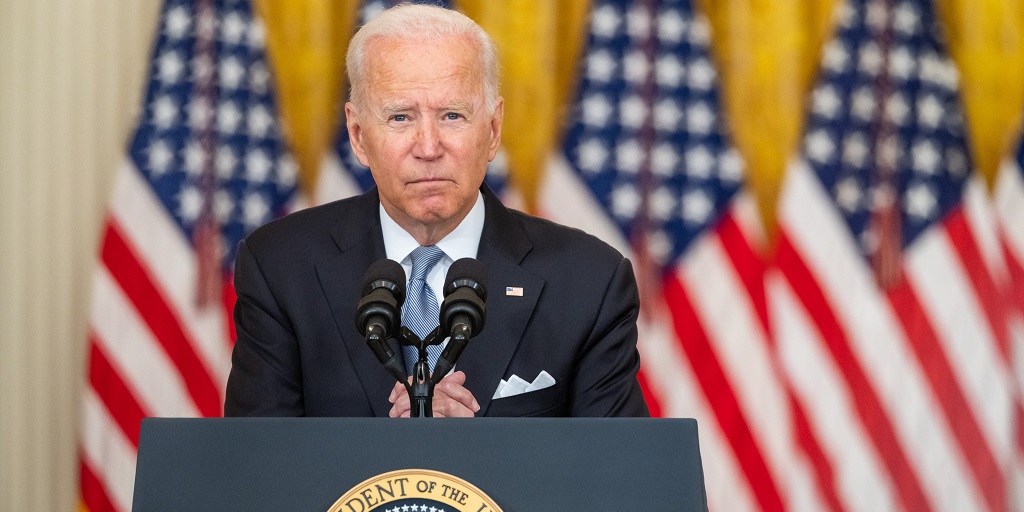The withdrawal of U.S. troops from Afghanistan in August 2021—as the country’s government was overtaken by the Taliban—led to the chaotic evacuation of thousands of Afghan nationals. The tragic images from Kabul airport last summer of desperate Afghans trying to escape their embattled nation evidenced the dire need to assist those who were not able to leave the country. Many of those attempting to reach safe havens served the United States’ mission in the country or are family members of Afghans who supported the U.S. military operations in Afghanistan.
Despite rhetoric from the Biden administration about its commitment to assisting Afghans in need of protection, the administration thus far has failed to meet the needs of the evacuees through one of its primary methods of providing rapid protection—humanitarian parole.
The humanitarian parole process for Afghans has been plagued with delays, denials and other issues, and very little information about the humanitarian parole process has been made publicly available by the government. A recent Freedom of Information Act (FOIA) request filed by advocacy groups seeks to uncover data about decisions on parole applications and learn more about these significant delays in humanitarian parole and refugee processing.
Humanitarian parole is temporary permission for someone to enter the United States and remain here for a limited period for urgent humanitarian reasons or to serve a significant public benefit. Parole does not confer immigration status, but beneficiaries of humanitarian parole may be considered applicants for admission and may be able to apply for lawful status in the United States, if eligible. In addition, beneficiaries of humanitarian parole may be eligible for employment authorization for the duration of their parole period. This benefit is crucial to those who, because of the dire circumstances, cannot apply for a visa or refugee status through the regular channels.
Those Afghan nationals who are potential beneficiaries of the humanitarian parole process have faced significant delays by U.S. Citizenship and Immigration Services (USCIS), the component of the Department of Homeland Security (DHS) charged with deciding applications for humanitarian parole.
In a report to Congress, DHS noted that the vast majority of Afghan evacuees who entered the United States were granted humanitarian parole by Customs and Border Protection officers at ports of entry. The government’s figures, however, fail to address the thousands of Afghans seeking humanitarian parole who did not enter the United States. A recent New York Times report states that of the 43,000 humanitarian parole applications received by USCIS since July 2021, the agency has processed less than 2,000. Of those processed applications, 1,500 were denied and 170 were approved as of February 11, 2022.
These processing issues have garnered widespread concern from the public and elected officials. Senator Ed Markey led a group of Senators and House members to issue a letter to DHS expressing concern about the delays.
The public needs to know whether the humanitarian parole program is meeting the goal of assisting not only the Afghans who reach our borders, but also their family members who cannot return to their devastated homes. We must better understand how the humanitarian parole system currently works to know if we are fulfilling our promise to Afghans seeking to resettle safely in the United States.


